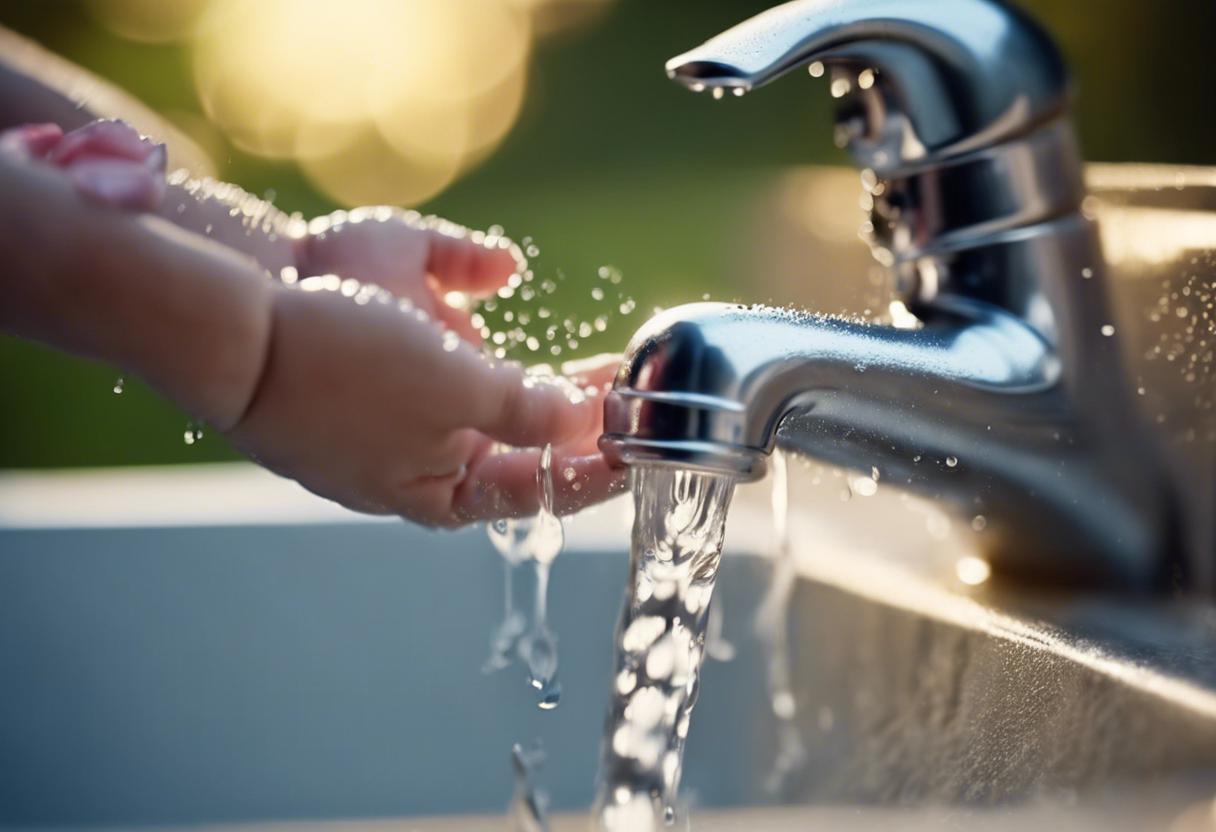Unicef is actively working in 158 nations across the globe with the assistance of various water initiatives, made possible due to the kind contributions of our sponsors. This includes a number of individuals who have chosen to gift a legacy donation in their testament.
Impact of Unicef in Yemen
In Yemen, Unicef manages solar-powered water schemes that supply safe drinking water to over 2.5 million Yemeni citizens, with 137,000 of these inhabitants been in the city of Dhamar. Within this city live Nabil, his wife Salma, and their three children who had to escape conflict in their home town of Taiz.
The ongoing blockade of Yemen’s Hudaydah port had interrupted the delivery of critical fuel resources to the country, which created a hindrance to the proper functioning of the infrastructure. Due to this, notwithstanding the relative safety of Dhamar, Nabil and his family’s living conditions were precarious. They were living in substandard homes with no steady income and often found it hard to locate food or drinking water. They once even survived for three days without any water.
The family’s primary water source was water delivery trucks where they would line up for hours just to secure 20 to 30 litres of water – a meagre 4–6 per cent of the quantity recommended by the UN for a family to have each day.
Nabil notes, “The water had a peculiar, unusual taste.”
While this did not impact the adults, it made their three-year-old son, Mohammed, sick. He developed symptoms like a painful throat, vomiting and diarrhoea, and was eventually diagnosed with cholera at a local hospital.
Water scarcity and its repercussions on safety and schooling
Seeing Mohammed’s condition deteriorate, Nabil and Salma were highly distraught and feared for their son’s life. However, due to their prompt action and care, Mohammed was able to make a complete recovery. Nabil stated that their spirits were lifted when they saw their son healthy again.
Nevertheless, their troubles were far from over. Without a reliable source of clean water, any of their children could contract a serious illness which could potentially have worse outcomes in the future.
Moreover, the unavailability of safe water also hampered children’s education as many are forced to leave schools to spend time in long queues at the water tankers in order to ensure their family has enough water.
The importance of safe water to power local societies is therefore, crucial.
The solar-powered water scheme by Unicef, valued at €1.2 million, has transformed life for Nabil and over 137,000 other residents of Dhamar by delivering uncontaminated, flowing water. The initiative is also fostering self-reliance by nurturing a domestic skilled workforce for Yemen’s future. Who knows, maybe Nabil’s young son Mohammed may follow in the footsteps of Hassan one day.
Hassan, 24, uses his engineering skills to manage Dhamar’s gigantic solar-powered water infrastructure, ensuring his town people have access to pure water. “The entire system, from control devices to inverters, to solar panels, was provided by Unicef,” articulates Hassan.
In Hassan’s eyes, his job merges the highly technical with humanitarian service. He hopes his fellow Yemenis develop similar technical expertise to reduce the nation’s reliance on foreign help.
“We can offer timely assistance ourselves, rather than wait for engineers from abroad,” Hassan affirms. “This project has sparked my creativity in problem-solving.”
Persevering with projects of this magnitude is always challenging, but even more so in Yemen, a country still embroiled in long-standing conflict.
Despite these obstacles, Unicef is collaborating with Yemeni communities on an additional 149 solar water schemes, enabling 2.5 million people to gain access to safe, purified water.
These projects not only deliver clean drinking water to schools and health centres, but they also help decrease dependence on and utilisation of fossil fuels. Fossil fuel consumption has already reduced significantly in these water systems, by up to 63 per cent in the city and 80–100 per cent in rural areas.
The benefits of these projects are obvious: they make available and guard pure water sources for the future whilst stabilising societies by providing steady employment and mitigating the health and economic impact of unsafe water resources.
In the fight against poverty and disease, actions like these are crucial. From 2000 to 2019, death from diarrhoea due to unsafe water and sanitation saw a drop of about 50 per cent. However, there is still a pressing need for further action. As per the experts, by 2040, a quarter of children worldwide will inhabit areas with severe water stress.
With clean water initiatives as a crucial part of Unicef’s core missions, it boasts the largest worldwide program to bring clean water to children. Hence, leaving a bequest to Unicef in your will is critical to maintain long-lasting water programs that promote sustainability for children and cease the poverty and disease cycle.
Give a legacy gift for children and alter the path of a child’s future
Your Will is a mirror of your deepest-rooted principles, guaranteeing your loved ones are looked after. Moreover, it’s a unique opportunity to create enduring change, uplifting the lives of yet-to-come generation children.
Your will can include a gift to Unicef. Here are the details you need:
– Organisation: Unicef Ireland
– Registered Address: 33 Lower Ormond Quay, Dublin 1.
– Charity Registration Number: 20008727
– Revenue CHY Number: 5616
If you need a free legacy guide encompassing a Will Planner, connect with the Legacy Gifts Manager at [email protected] or call at 01 878 3000. More info can be obtained by visiting unicef.ie/legacy.
For every child, the luxury of clean water.

